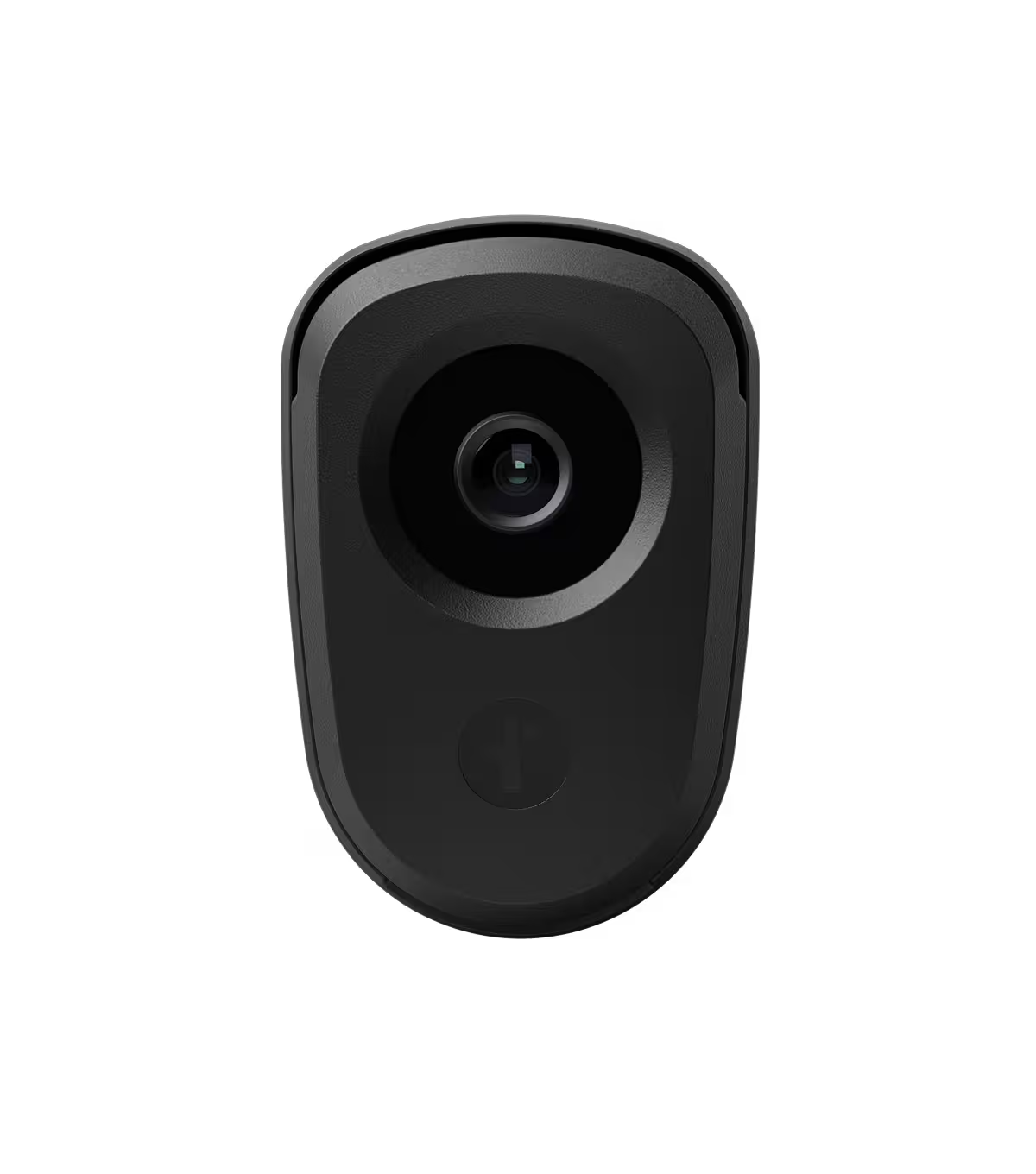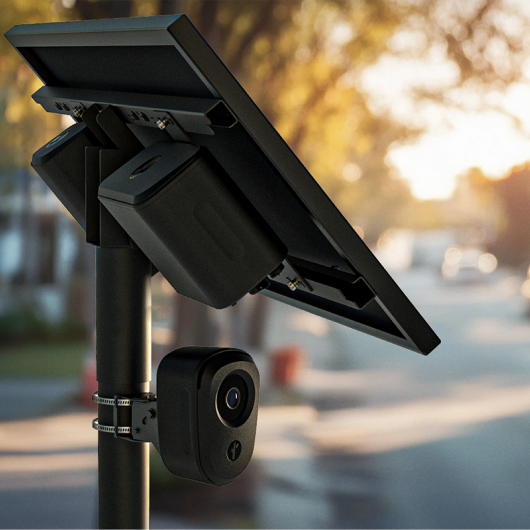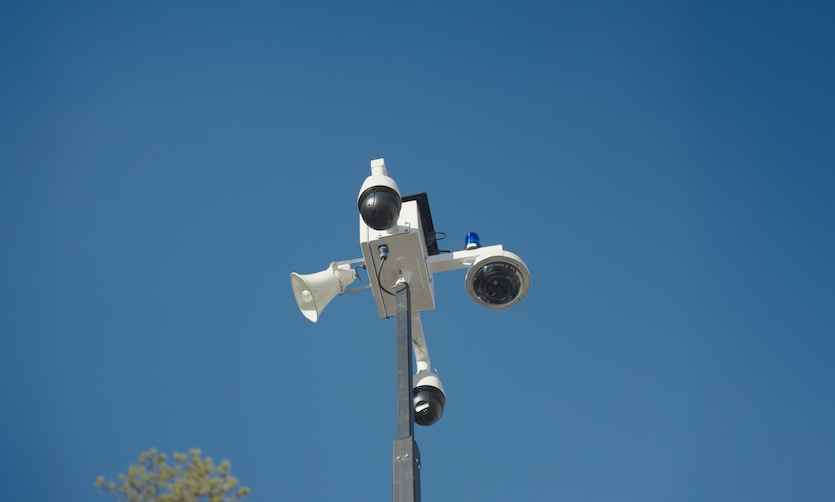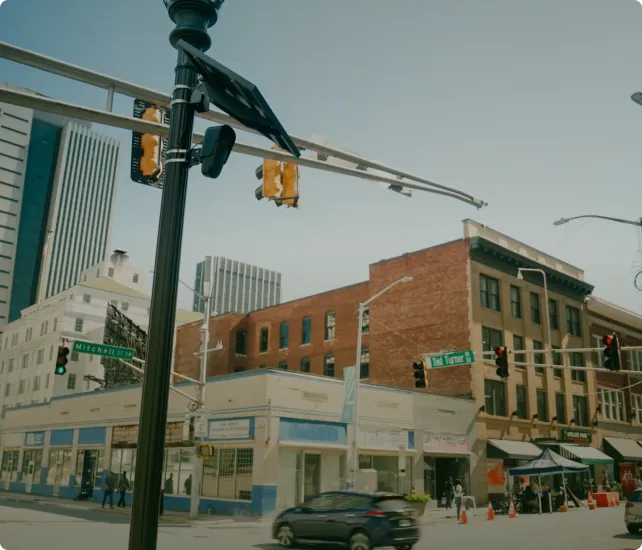


How One Lieutenant Builds Community Engagement With License Plate Readers
This post is authored by Lieutenant Ben Mixon, an active law enforcement officer in Georgia and consultant for Flock Safety.
In a poll gauging the public’s level of trust in the police, Gallup researchers found that 57% of Americans had a “great deal” or “quite a lot” of confidence in the police. This is an increase from recent years and it’s a step closer to bridging the gap between officers and the community. Unfortunately, citizens are still hesitant around technology’s new role in policing. So what ways can we continue to build trust with our cities and ensure citizens’ questions are addressed when it comes to the tools we use?
At Marietta Police Department (based in metro Atlanta, Georgia) we recently took stock of our policing approach. Many citizens expressed privacy concerns when it comes to the technology we use, specifically when it came to Automatic License Plate Reading (ALPR) systems. Some of them shared that they felt like they were being tracked or watched. This ran in direct conflict with how our agency wants residents to feel.
These conversations made it clear that communication and transparency are key to maintaining strong relationships and building new ones with the community we serve. Chief of Police Dan Flynn solidifies that message in a letter to the city sharing that “[t]he most powerful and effective crime-fighting and crime prevention tool we have in Marietta is the trust and cooperation of Marietta citizens.” So while ALPRs are critical to policing within the city, our agency wanted to engage the community so citizens could better understand technology’s role in keeping the public safe while not negatively impacting their right to privacy.
Transparency and Communication
Many residents formed their own opinions around the data ALPRs collect. Some of their misconceptions were around how police are tracking, storing, and using the data. When we experience the value and successes related to the use of ALPRs in the city every day, we felt the need to clear up any confusion.
So the department began sharing stories on crimes solved. When significant arrests were made with suspects apprehended using the vehicle information collected from the LPR systems, we shared the news. One of those stories “License Plate Reader Leads To Marietta Arrest Of Violent Suspect,” appeared in the Atlanta Journal of Constitutional and championed how newly installed ALPRs in Marietta helped the department solve a crime.
This open line of communication with civilians through the local news helped us share what officers achieved and how their enforcement efforts, paired with the useful technology, could keep citizens safer.
Community Engagement
We didn’t stop with improved communication through success stories. Community engagement was our next critical area of focus knowing the positive outcomes that result when law enforcement works with different members of the community.
For years, the MPD initiated and maintained neighborhood watch programs. Connecting with citizens through M-STAR neighborhoods, COPS Areas, and community town hall meetings were just some of the methods used. We worked hard to create and fortify relationships with the neighborhoods served…all with a focus to express the importance of working together and of staying alert.
Still, striving for more, MPD began educating residents on safety techniques. Threat assessments were provided to numerous neighborhoods and through these programs, the department saw a decrease in neighborhood crime. Knowing the potential to make a lasting impact, we decided to take the next step in organizing how our neighborhoods could help in the event of crime. Leveraging the relationships built, we started creating virtual neighborhood program.
Systems in Marietta Intersecting with Law Enforcement (SMILE) helps neighborhoods understand who has cameras that may help in the event of a crime. With a roll-out tailored to easing concerns learned from community engagement, respect for privacy, our officers worked with homeowners and businesses to successfully educate and roll-out the program.
Through SMILE, the community has the option to register the location of their already-installed camera systems and ALPRs with the MPD. Whether the cameras capture still pictures or video, owners can register their device. That means when a crime occurs, our officers can speak to people in the area that may be able to provide the actionable evidence needed to solve the case.
Moving Forward, Together
Through community programs and regular engagement, officers built sustainable relationships between citizens and our department. By promoting transparency and communication, we were able to change how the community felt about the use of technology by police and empower them to help us in the future so we can all bring crime down together.
About the Author:
Lieutenant Ben Mixon works as a consultant for Flock Safety. He has been an active officer in the law enforcement field for over 14 years and has worked all three uniform patrol shifts as an officer and Morning Watch and Day Watch as a Sergeant. He is currently a Lieutenant and has the opportunity to work in multiple specialized units throughout his career including SWAT for over 10 years. He attended Auburn University and graduated with a bachelor’s degree in criminal justice.
Lt. Mixon is a graduate of the Dale Carnegie Course: Effective Communications & Human Relations/Skills for Success and has received multiple certifications in various aspects of the law enforcement profession. He is projected to receive his Master’s Degree in May of 2019 and anticipates continuing his education and training in law enforcement.





Protect What Matters Most.
Discover how communities across the country are using Flock to reduce crime and build safer neighborhoods.

.webp)









